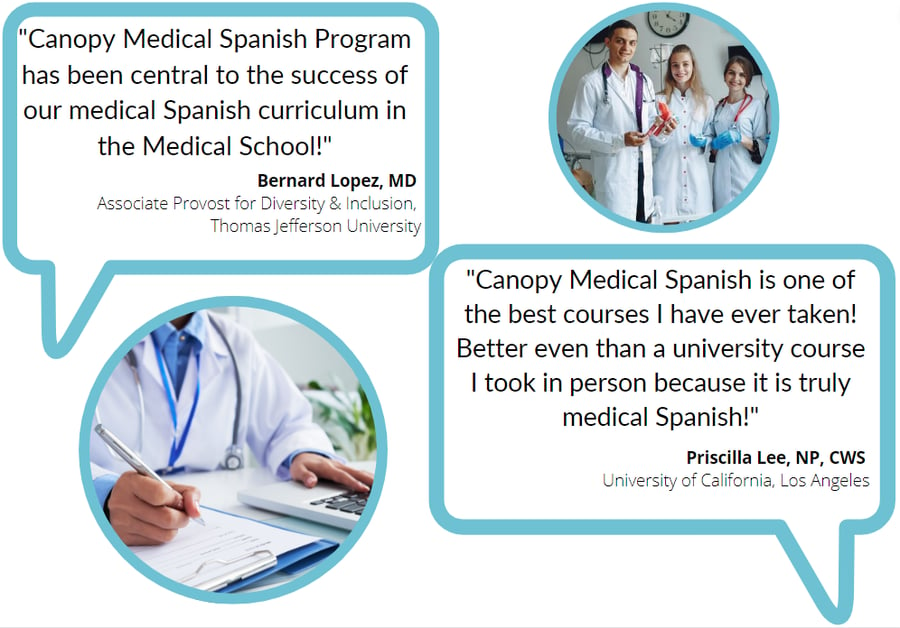Enriching and Supporting Learner's Success
CanopyLearn, with 40 hours of instructional content spread over three target proficiency levels and 36 lessons, is the most comprehensive and experiential self-paced e-learning platform of its kind. The engaging and bite-sized modules are crafted specifically for clinicians and staff and employ a proven learning-by-speaking methodology. With role-play exercises, a telenovela series, and more, users experience multiple learning modalities that makes acquiring foreign-language fluency more engaging, effective and rewarding.

Research and development for various Canopy products has been supported in part by the awards from the National Institutes of Health listed here.
.png)
Embark on Your Journey as a Bilingual Healthcare Professional Today!
Don't forget to claim your 10% off with promo code WELCOME10 at checkout!
.png)
Methodologically sound: An NIH-funded, self-paced e-learning course used in over 1/3 of medical schools where you will experience multiple learning modalities that make acquiring foreign-language competency more engaging, effective and rewarding.
A Medical Spanish course that works for you: You're busy. CanopyLearn is not only self-paced, providing you with ultimate schedule flexibility, it also delivers a highly engaging, experiential learning program focused on practicing speaking with real clinician-patient scenarios so that they’re ready to help limited English proficiency patients right away.
Get Credentialed and Earn CE Units: Boost your resume and candidacy by earning CE units and by getting bilingual credentialed after finishing the course program. Simply select the Canopy Learn + Credential option upon checkout!


40 Hours of Instructional Content Covering Top Medical Specialties
| Level I | Level II | Level III |
|
|
|
Qualified Bilingual Staff don't compete with Medical Interpreters, they are a compliment.
Going 'beyond interpreters' doesn't mean going without interpreters... it means providing coverage for the 80% of patient encounters that are poorly supported or lacking interpreter resources.
A Qualified Bilingual Staff member can use interpreters if necessary, but they can also interact with LEP patients directly using their language skills, allowing them to directly provide better care without depending so heavily on medical interpreters.



